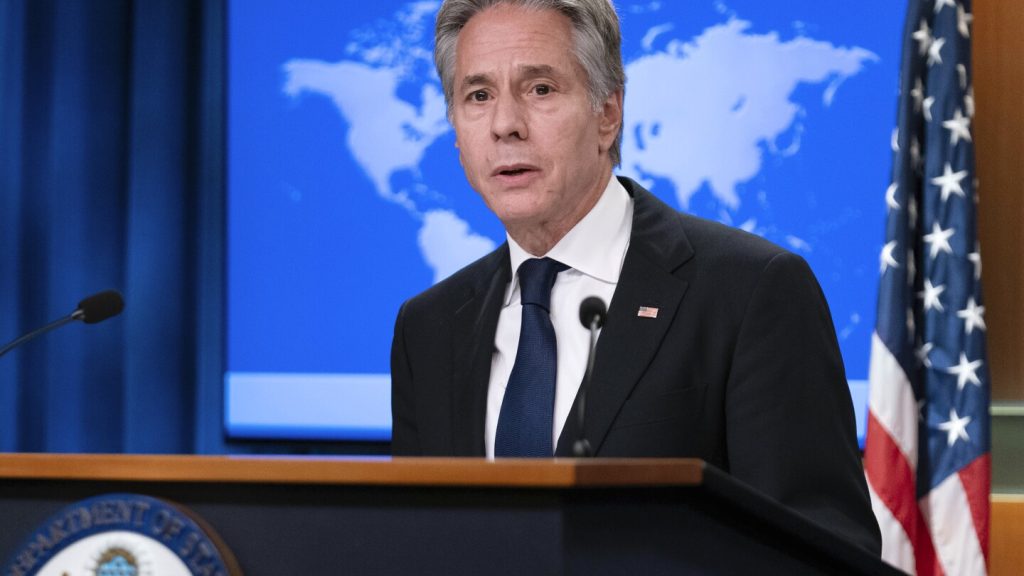The U.S. State Department has imposed new sanctions on Russian state media outlet RT, accusing it of collaborating closely with the Russian military and running fundraising campaigns to provide soldiers fighting in Ukraine with sniper rifles, body armor, and other equipment. This move comes as the U.S. continues to crack down on Russian propaganda and disinformation efforts, with Secretary of State Antony Blinken condemning RT’s role in Russia’s war machine. The State Department also highlighted RT’s use of websites posing as legitimate news sources to spread propaganda and disinformation globally, as well as its involvement in cyber operations.
The crowd-sourcing effort by RT to raise funds for military supplies, including night-vision equipment, drones, radios, and generators, was conducted on Russian social media platforms. Despite no clear connection between RT and the fundraising campaign, officials have raised concerns about the outlet’s ties to Russian intelligence. Jamie Rubin, who heads the State Department’s Global Engagement Center, emphasized that RT’s actions go beyond spreading disinformation and make it an integral part of the Russian government’s intelligence operations.
While President Putin’s spokesperson dismissed the allegations against RT as “nonsense” and praised the outlet’s effectiveness as a media organization, the sanctions imposed on RT’s parent organization, TV-Novosti, and other related state media groups demonstrate the U.S. government’s determination to target Russian propaganda efforts. Russia’s Foreign Ministry criticized the unnecessary imposition of sanctions, highlighting the ongoing scrutiny of Russia’s global propaganda activities, particularly in the context of the upcoming U.S. election. The Biden administration recently seized Kremlin-run websites and charged two RT employees with covertly supporting far-right influencers in the U.S.
Intelligence officials have warned of Russia’s use of unwitting Americans to spread propaganda in English on popular American sites in an effort to sow division and reduce support for Ukraine. Russia’s influence operations also appear to be geared towards supporting former President Trump, who has made favorable comments about Russian President Putin and criticized Ukraine and NATO. The Biden administration’s actions against RT and other Russian propaganda outlets reflect growing concerns about foreign interference in U.S. elections and the need to counter disinformation campaigns aimed at undermining democratic processes.















